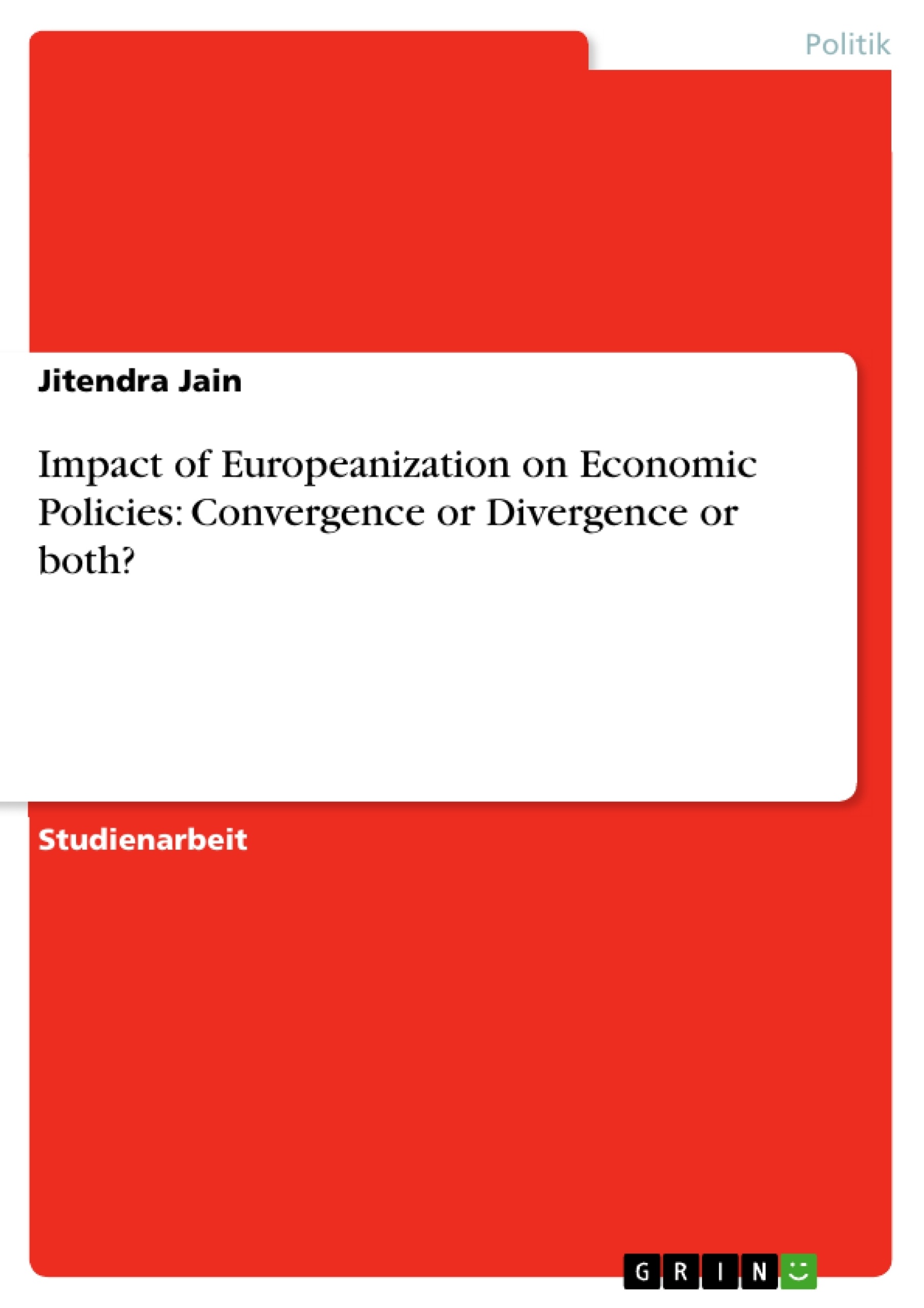Earlier studies about Europeanization were based on bottom-up approach. These studies were all about Europeanization as a process itself.
Recently scholars are making attempt to adopt another method i. e. top-down method. I think one can understand Europeanization better with top-down perspective.
In this work my discussion and opinions are based on top-down method.
Europeanization is not same as European Integration. However there are lots of similarities between them. Various emerging images of Europeanization are described before I proceed to discuss impact of Europeanization on economic policies of member states.
In order to provide a systematic account of impact of Europeanization on economic policies of member states, my work focuses on responses in three countries namely France, Germany and Britain. This work explores mechanics of adjustment in several economic areas such as monetary policy, financial services, telecommunications, electricity, transport and the environment.
In concluding part an attempt is made to analyze and describe various patterns that emerge from impact of Europeanization on Economic Policies of member countries.
Index
Introduction
1 Definitions of Europeanization
Ladrech (1994)
Börzel (1999)
Hix and Goetz (2001)
Risse, Cowles and Coparaso (2001)
2 Top-down Approach & Bottom-up Approach
3 Discussing Europeanization
Domestic Impact
Presence of “Misfit” factor
Facilitating Actors
4 Logic of consequentalism vs. Logic of Appropriateness
5 Europeanization and Economic Integration
6 Five Faces of Europeanization (Olsen)
Change in Geographical boundary of Europe
Creation of a system of governance at supranational level
Domestic impact of single point governance
Exporting European system of governance beyond EU borders
Intensifying political unification of Europe
7 Three Levels of Europeanization of economic policies
8 Europeanization and Globalization
Europeanization not regional prototype of Globalization
Europeanization as Protective Element
Benefits to member states through common European Economic Policies
9 Impact of Europeanization on European Economic Policies
Germany, Britain and France
A European Monetary Integration
B Environment Policy Area
C Financial Services Sector
D Telecommunication Sector
E Electricity Sector
F Air Transport Sector
10 Convergence or Divergence or both?
11 Europeanization of Economic policies: An Interactive Approach
Bibliography



